Bentonite Clay for Dogs
If you have a dog with a sensitive tummy, soft stools, or the odd skin flare-up, you may have come across bentonite clay. Used carefully, food-grade bentonite can be a handy part of your home toolkit. In this vet-informed guide, you will learn what it is, how to introduce it, practical short-term amounts by weight, and simple ways to feed it. You will also see where bentonite may fit into your skin and oral care routine, and when not to use it.
Always choose food-grade clay from a trusted source, offer plenty of fresh water, and speak to your vet if your pet has a medical condition or takes any medication.
What is bentonite clay?
Bentonite clay is a natural clay rich in montmorillonite. In the gut, it acts like a gentle binder. Many owners and vets use it to support digestive comfort, help firm up loose stools, and settle the gut during short bouts of tummy upset. It is also included in some probiotic pastes and fibre blends because the combination can be practical during flare-ups. Some cat owners use it as part of hairball routines alongside fibre and hydration to help hair pass more easily, though this is based on everyday experience rather than medical claims.
Topically, bentonite is used in simple skin pastes to soothe minor itching or damp areas. In the mouth, a tiny amount mixed into a tooth-cleaning paste can add mild polishing power—more on safe oral use below.
How much bentonite clay can I give my dog?
These cautious, short-term example amounts are for food-grade bentonite clay powder. Start low, go slow, and use for a few days unless your vet advises otherwise.
Toy dogs up to 5 kg: 1/8 teaspoon once daily
Small dogs 5–10 kg: 1/4 teaspoon once daily
Medium dogs 10–20 kg: 1/2 teaspoon once daily
Large dogs 20–30 kg: 3/4 teaspoon once daily
Extra-large dogs 30–40 kg: 1 level teaspoon once daily
Giant dogs 40 kg+: 1 heaped teaspoon once daily
If stools are already very soft, some dogs do better splitting the amount into two smaller servings across the day. Do not exceed these amounts without veterinary guidance. If your dog becomes constipated, stop and contact your vet.
Tip: for very sensitive dogs, begin with half of the amount for 1–2 days, then step up if well tolerated.
Does bentonite clay help dogs with diarrhoea?
It can support dogs with mild, short-term diarrhoea by binding excess fluid in the stool and soothing the gut lining. Many owners notice improved stool form within a day or two when bentonite is used together with rest, bland food, hydration, and a quality probiotic paste. If your dog has blood in the stool, a fever, is lethargic, a puppy or a senior, or if loose stools persist beyond 48 hours, book a veterinary appointment. Persistent diarrhoea needs a diagnosis.
For a practical, all-in-one option during tummy upsets, our vet team often pairs bentonite with live bacteria in a paste format that is easy to give. If you want to explore this approach, read our guide to a probiotic paste for dogs.
Benefits of Bentonite clay for dogs
How do you feed a dog bentonite clay?
Pick the option that's easiest for you and your dog.
Mix with water: add the measured clay to a tablespoon or two of cool water, then stir until a thin slurry forms. Pour over food or offer via a small syringe if your vet has shown you how.
Blend with wet food: sprinkle the clay onto wet food and mix well so there are no dry pockets.
Pair with a probiotic paste: squeeze the paste onto a spoon, dust a pinch of clay on top if needed, and let your dog lick it. This is useful if your dog is off food.
Whichever method you choose, introduce it gradually and make sure fresh water is always available. Clay is thirsty in the gut, so water access matters.
Everyday digestive routines
For dogs prone to soft stools, you could keep bentonite for short, as-needed support and focus daily on fibre and live bacteria. A measured blend of soluble and insoluble fibre with prebiotics and probiotics can help maintain stool quality and anal gland emptying. If that sounds helpful, check out our Natural Doggie Fibre, a practical dog fibre supplement designed for routine use alongside regular meals.
Safe use for hairballs in cats
While this article is for dogs, many multi-pet households ask about cats. Small amounts of bentonite are sometimes included in cat digestive routines alongside fibre and hydration to help hair pass in the stool. If hairballs are a theme in your home, see our practical guide on how to stop hairballs in cats. Always follow cat-specific serving guidance and consult your vet if hairballs are frequent or your cat is vomiting.
Can I brush my dog’s teeth with bentonite clay?
You can use a tiny pinch of food-grade bentonite as an occasional abrasive polisher, but it is not a replacement for dog-safe toothpaste. If you try this, follow these tips.
Use a pea-sized blob of dog toothpaste, then dip the tip of the brush into a tiny pinch of clay; you want a very light dusting.
Brush gently for 30–60 seconds on the outer tooth surfaces.
Rinse the brush well. Use no more than twice per week.
If your dog has sensitive gums, exposed roots, enamel defects, or existing dental disease, avoid abrasive products and speak to your vet. For daily care, an enzyme-based formula is usually the simplest option; browse our range of enzymatic toothpaste for dogs.
JP's Bentonite clay for dogs and cats
Topical skin uses.
For minor skin soothers, you can make a simple paste.
Mix food-grade clay with cool, boiled water to a yoghurt-like paste.
Apply a thin layer to clean, intact skin to help dry weepy areas and soothe mild irritation.
Leave on for 10–15 minutes, then rinse gently and pat dry.
Do not use on deep wounds, infected skin, hot spots, or near the eyes or mouth. If your dog is chewing or licking, or if there are any signs of infection, book a vet check.
When not to use bentonite clay
Constipation or very dry stools: clay may worsen this; stop use.
Dehydration or poor water intake: Ensure free access to water before considering clay.
Medication timing: clay can bind medicines and reduce absorption. Give medications at least 3 to 4 hours apart from clay or follow your vet’s advice.
Chronic diarrhoea, blood, black tarry stools, vomiting, weight loss, fever, puppies, and seniors: seek veterinary assessment rather than home treatment.
Known mineral imbalances: discuss with your vet first.
Practical 3-day plan for a mild tummy upset
Day 1: Rest the gut briefly if advised by your vet, then offer small, bland meals. Give the cautious clay amount for weight once daily. Encourage water intake.
Day 2: Continue bland diet. If stools are still loose but improving, repeat the same clay amount. Consider adding a probiotic paste.
Day 3: If stools are firming, stop clay and transition back to regular food. If there is no improvement, or your dog seems unwell, contact your vet.
Product notes and quality
Choose food-grade clay with clear batch testing. Avoid clays sold for non-dietary uses. If you prefer a ready-blended option created by a UK veterinary team, see JP’s Natural Bentonite Clay within our digestive range; it is included in several gut support products for ease of use.
Summary
Bentonite clay can be a simple, short-term tool to support digestive comfort and stool firmness in dogs, with extra uses for mild skin soothing and occasional dental polishing. Start with small, weight-based amounts, mix into food or water, and keep water available. Please do not use it when stools are hard or your dog is dehydrated and separate it from medications by several hours. If loose stools persist beyond 48 hours, or if your pet is a puppy, senior, unwell, or on medication, seek veterinary advice before use.
For day-to-day gut stability, consider building a routine around balanced fibre and live bacteria, keeping bentonite for as-needed support. You can explore our dog fibre supplement for daily use and a convenient probiotic paste for dogs for flare-ups. If hairballs are an issue in your cat, our guide on how to stop hairballs in cats may help you build a simple prevention plan.
As always, if your pet has an existing condition or takes any medication, consult your vet before introducing supplements, including bentonite clay.





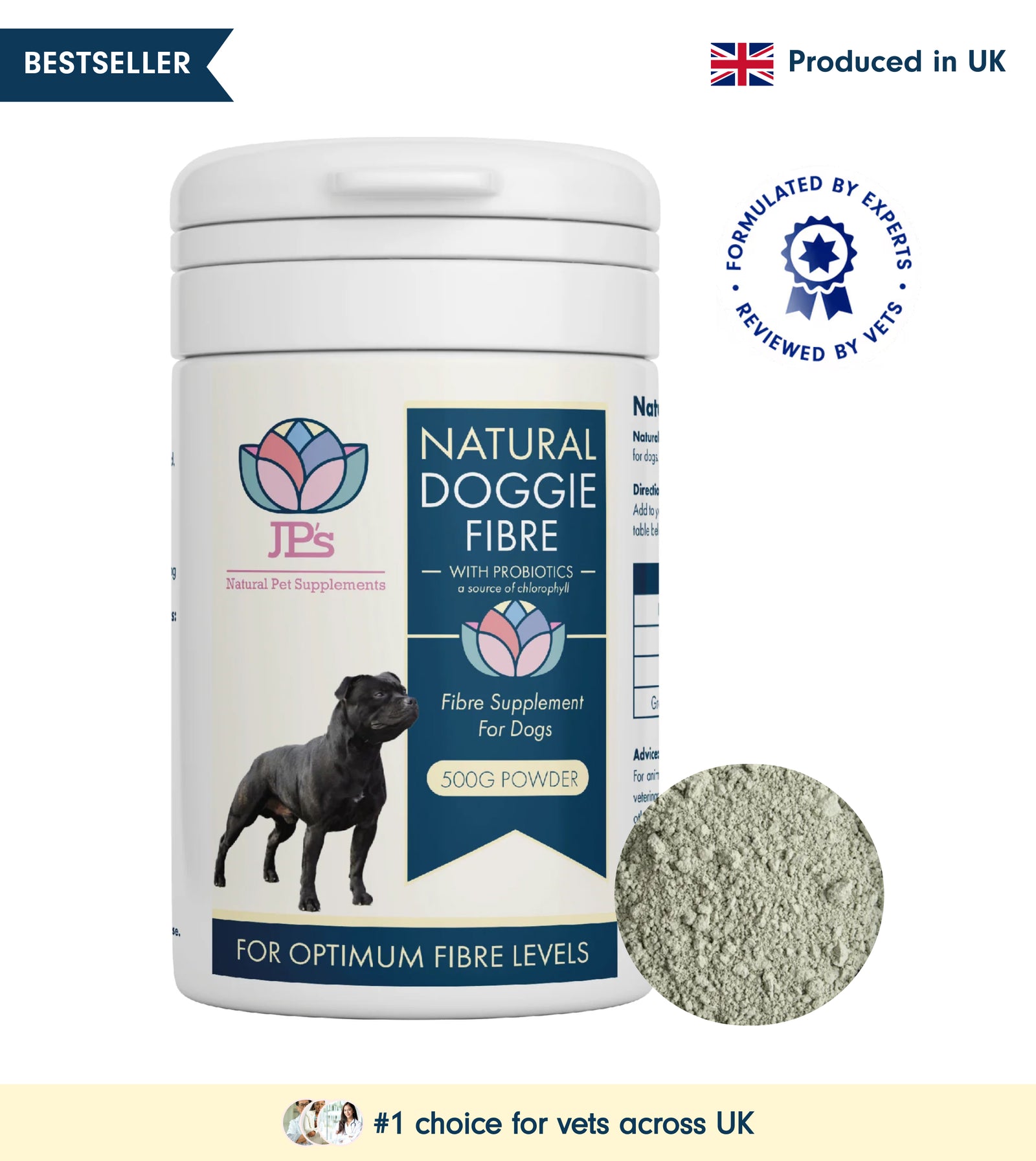
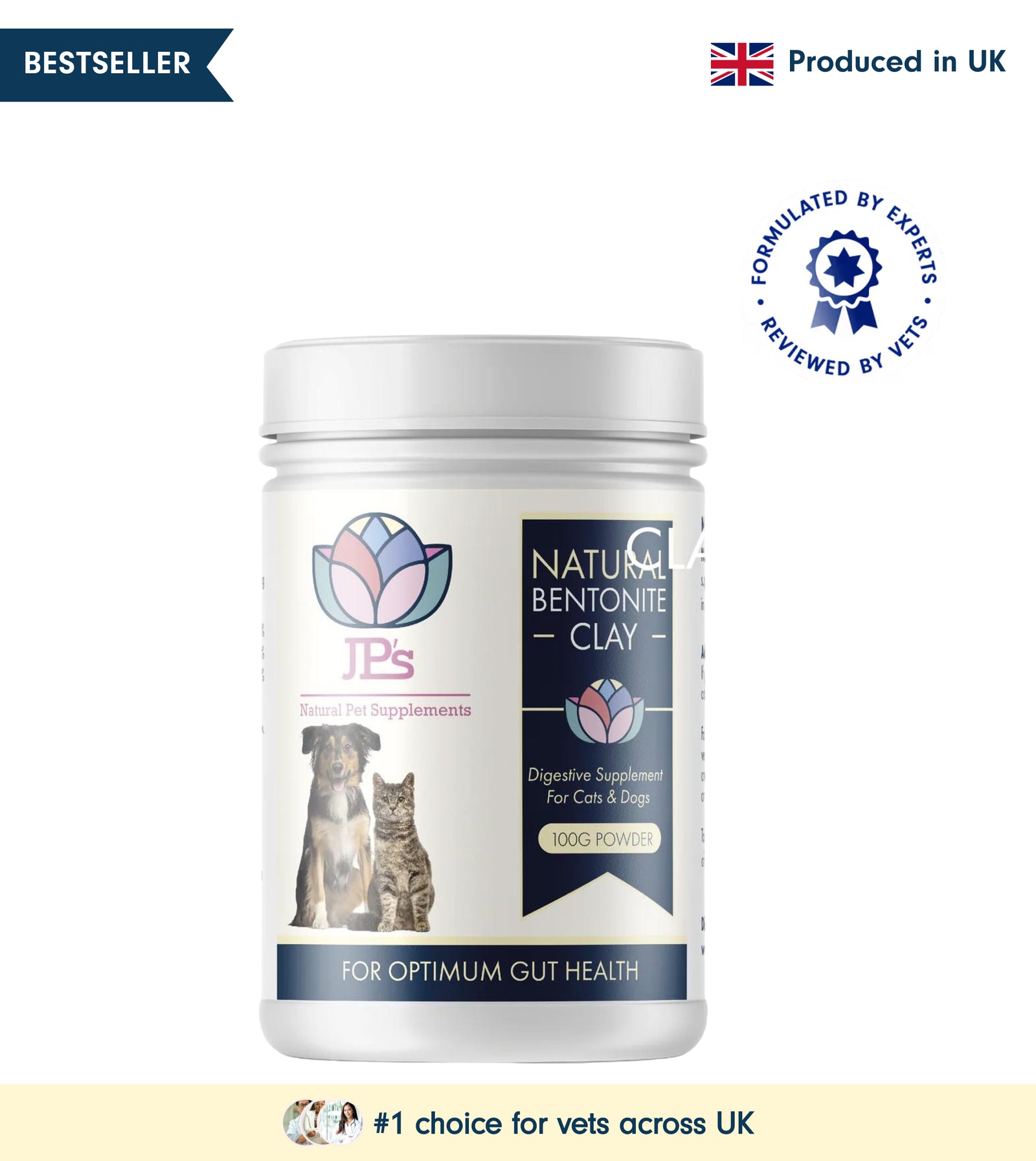
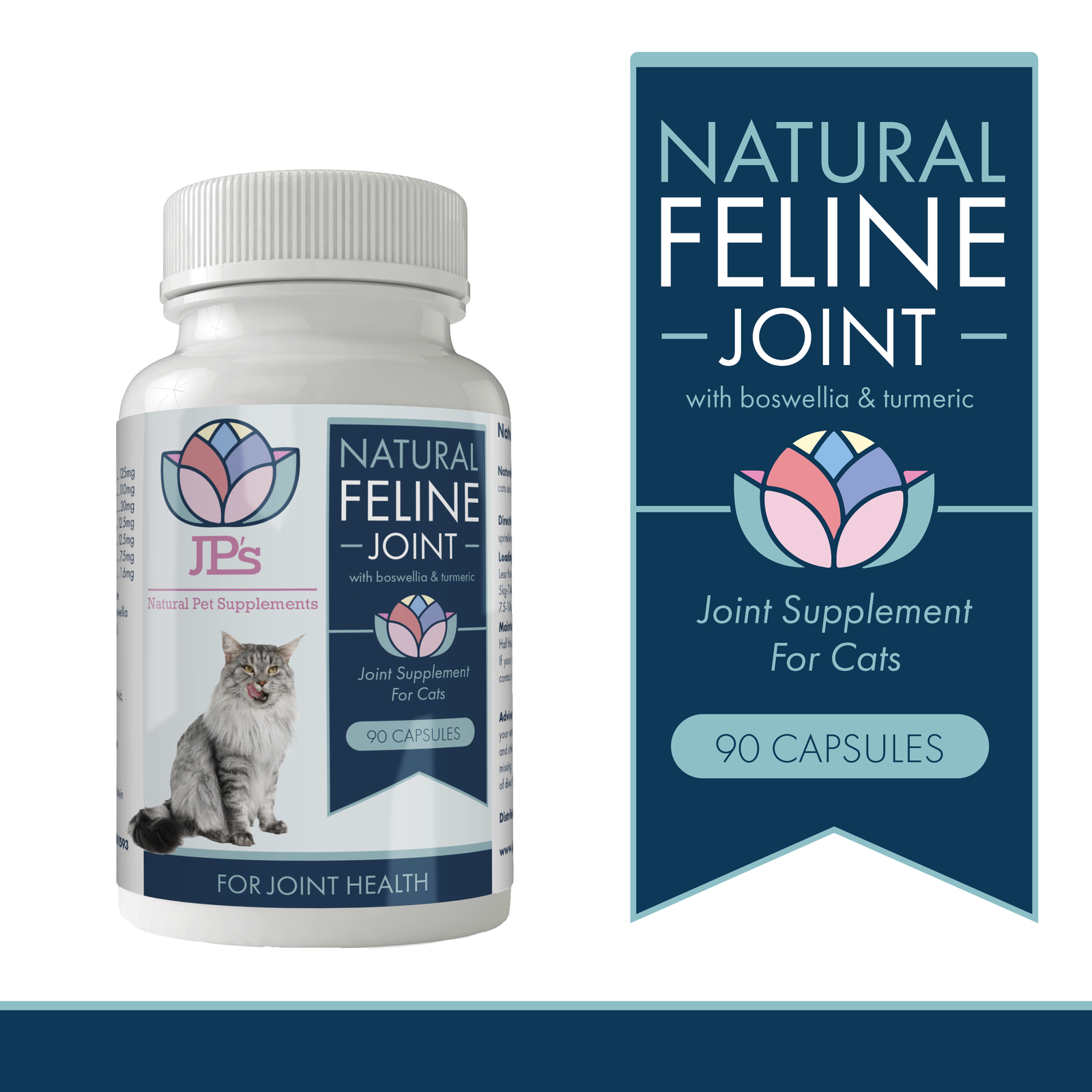
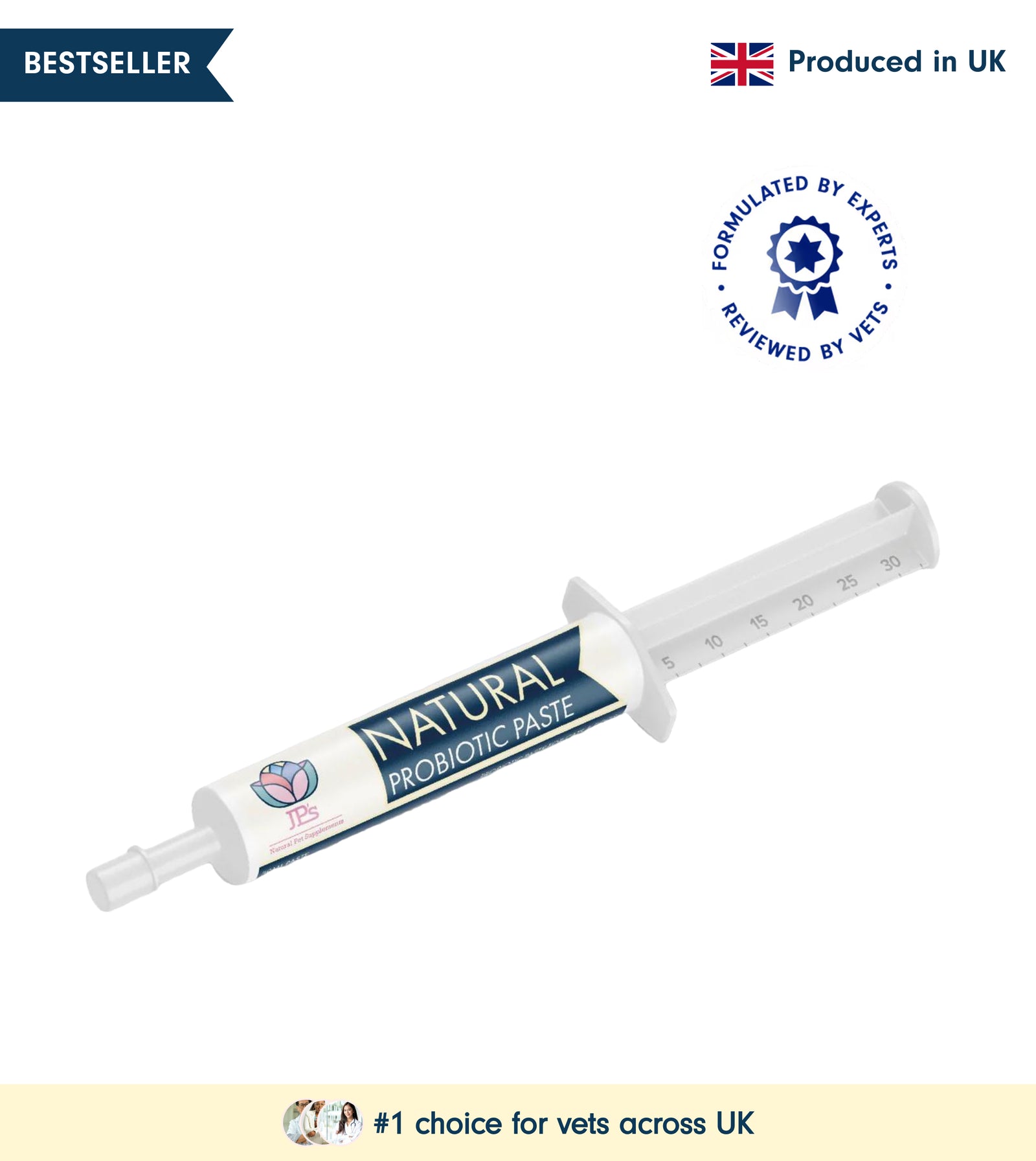
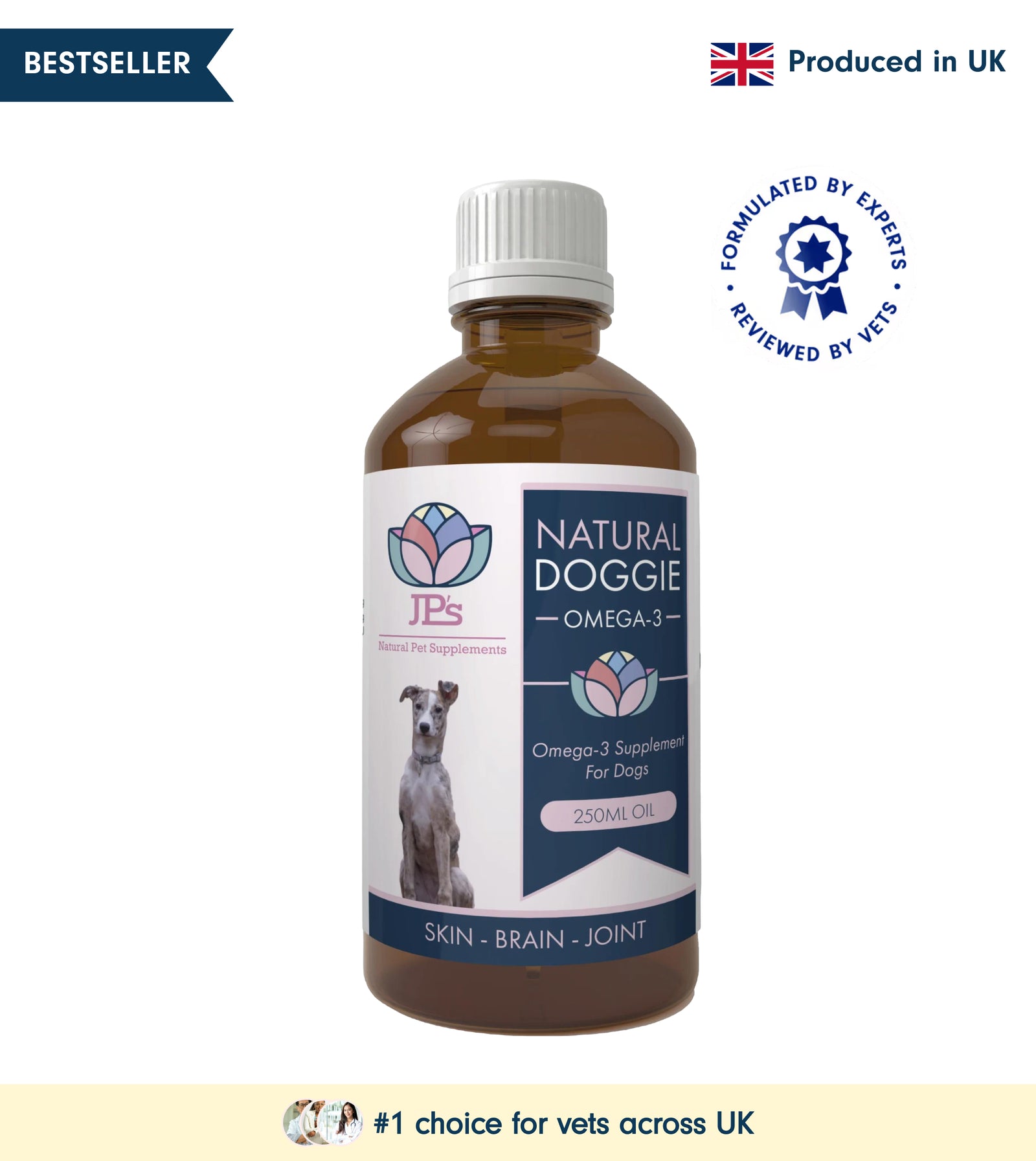
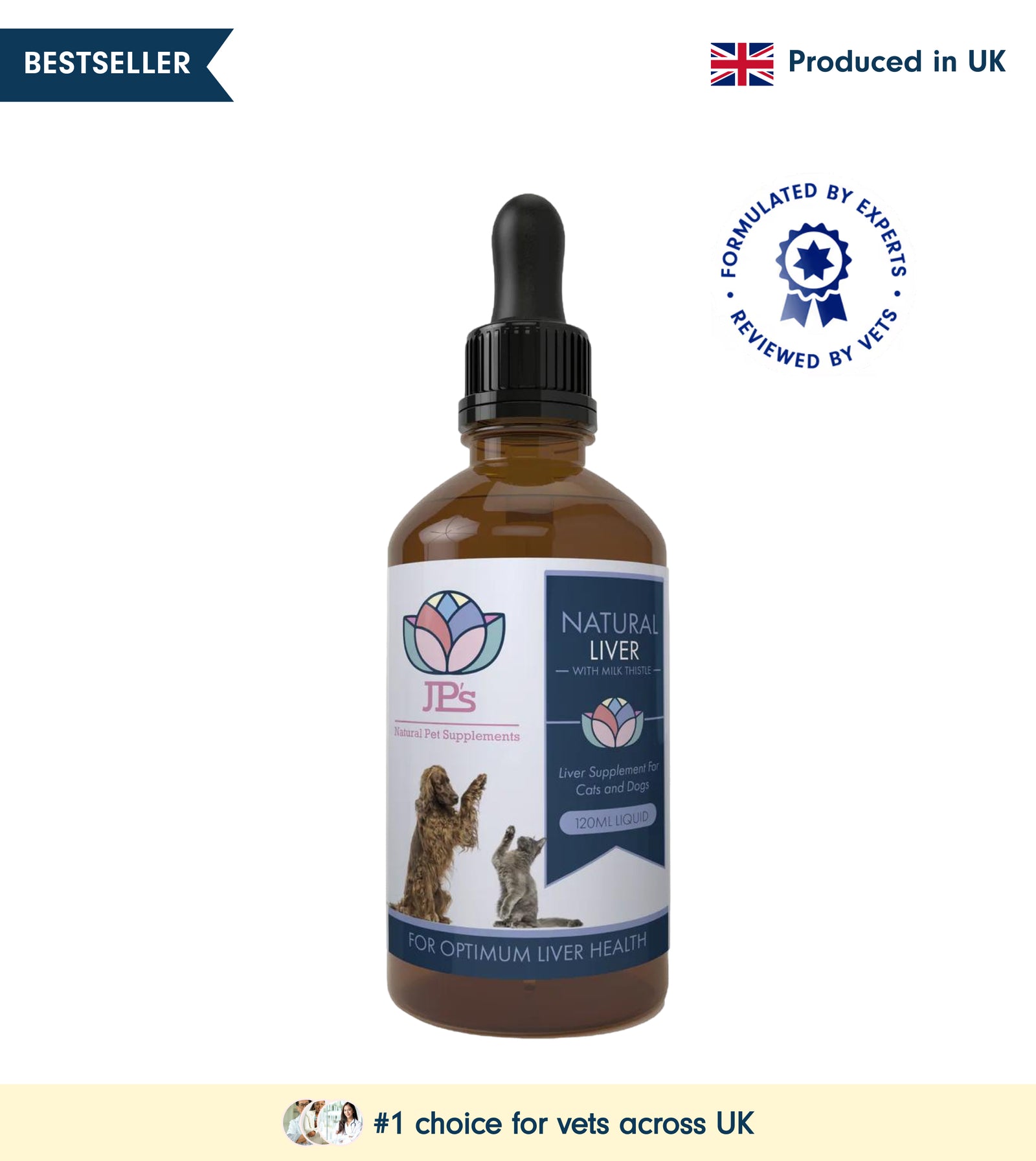
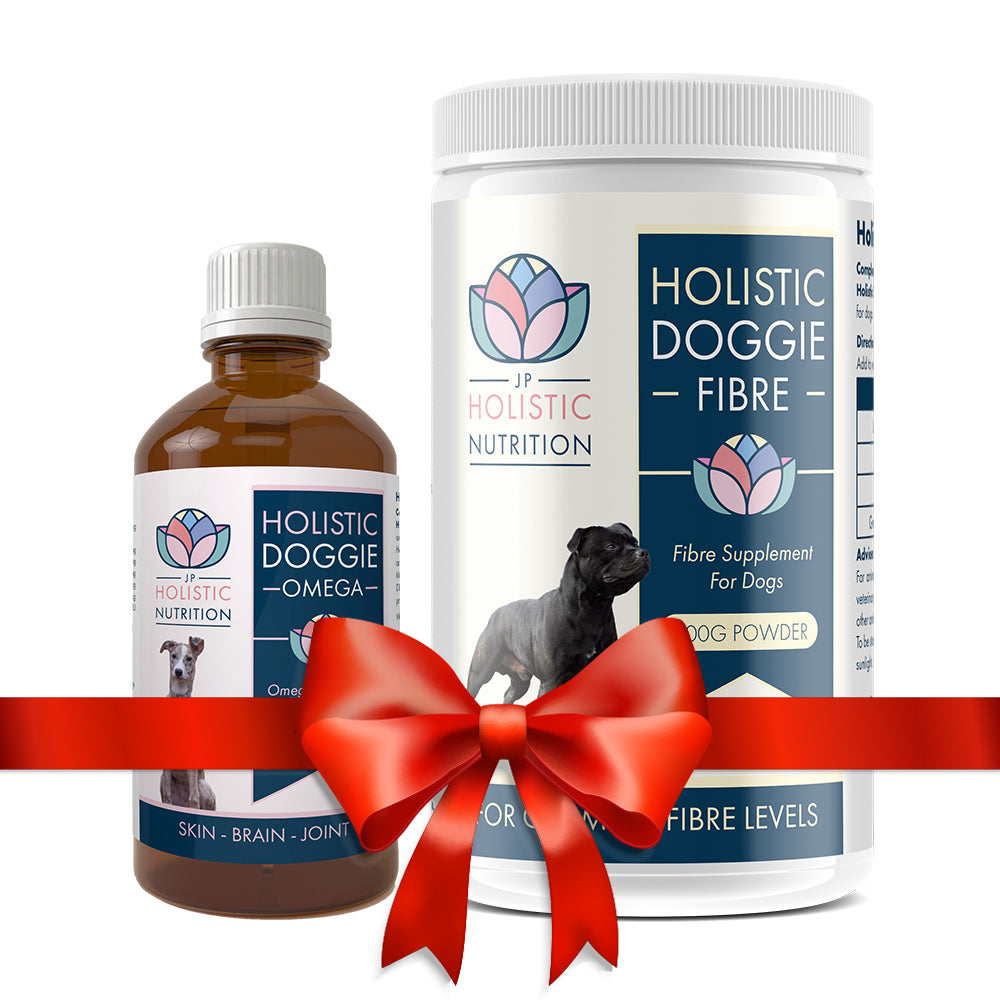
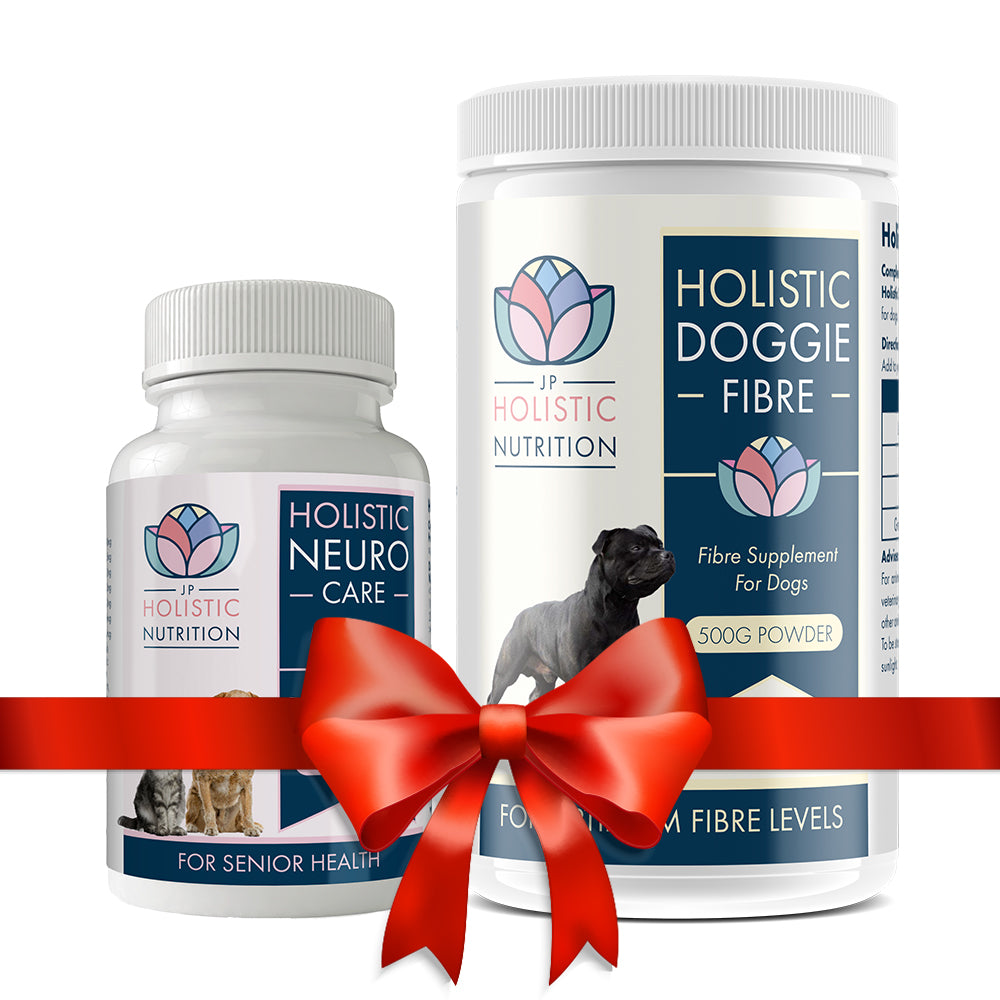
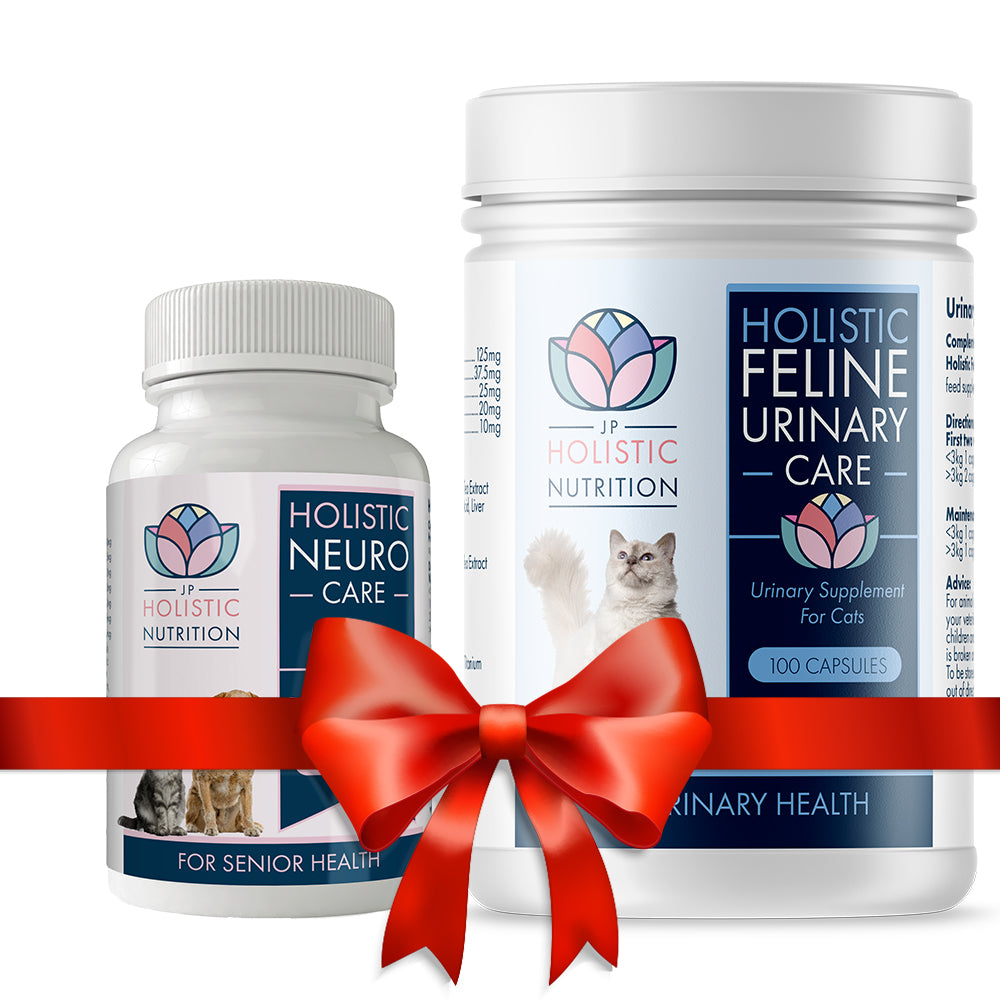
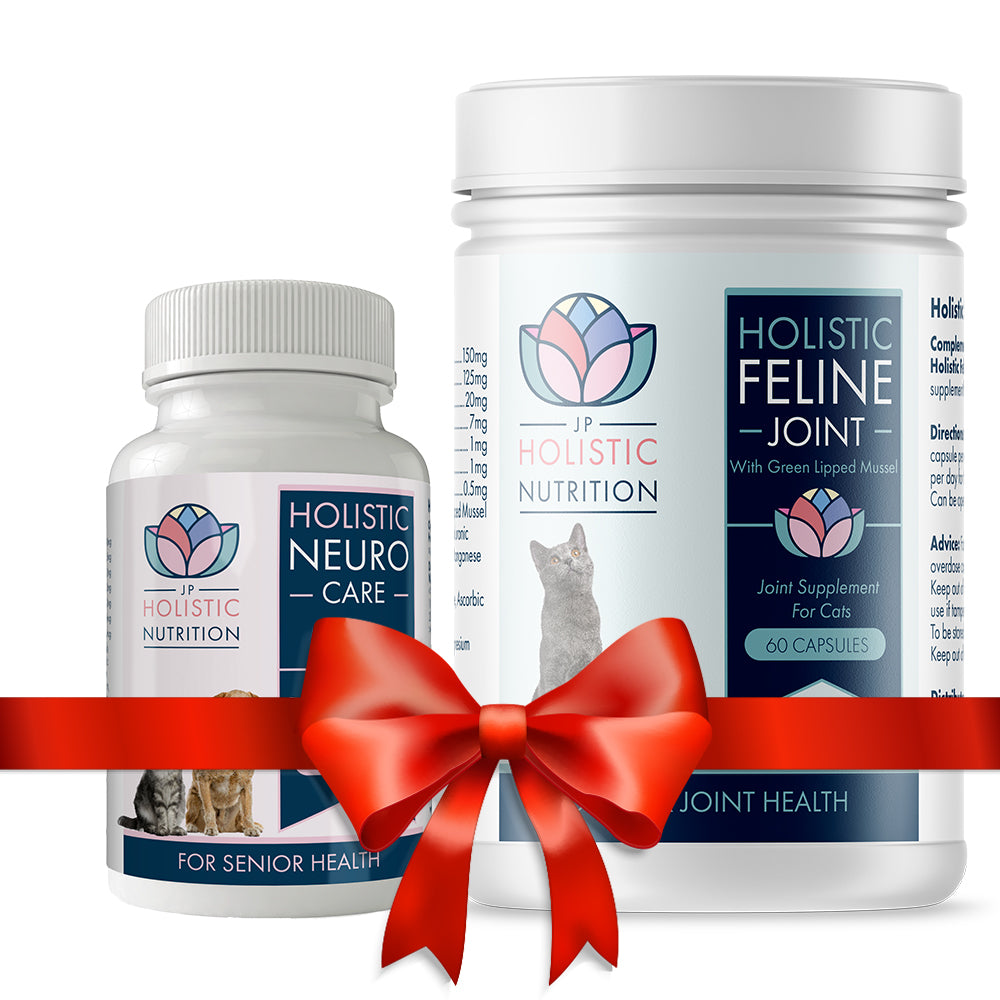





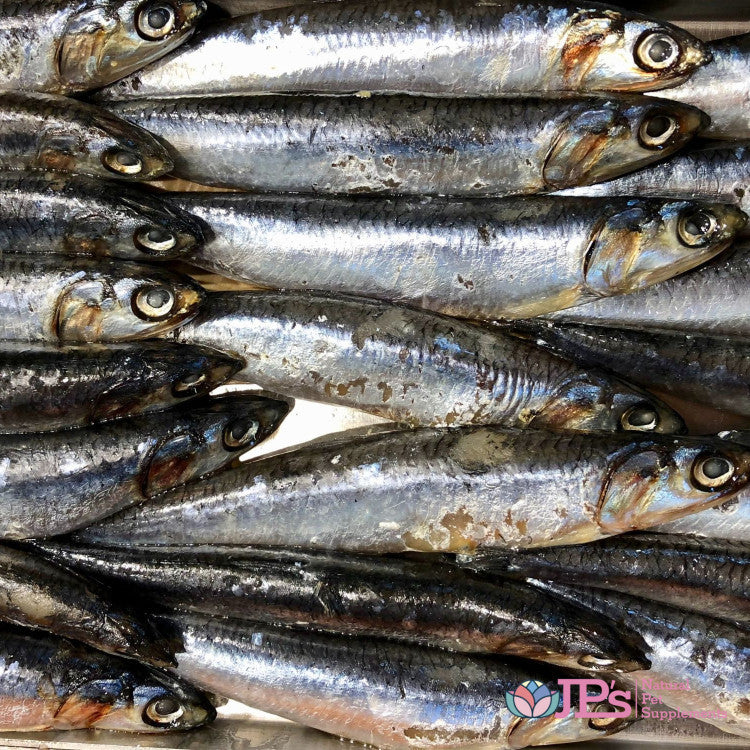
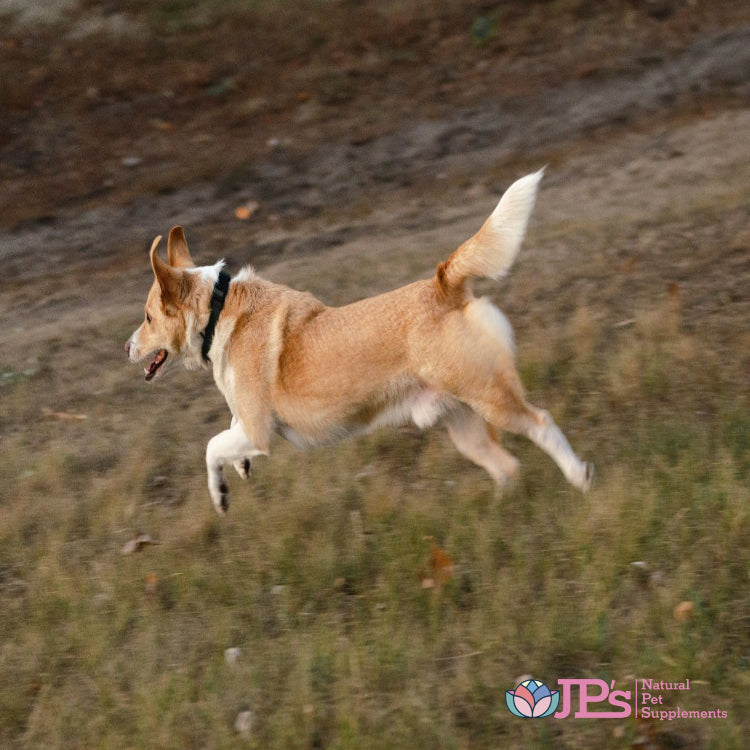
Leave a comment (all fields required)